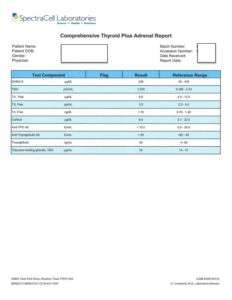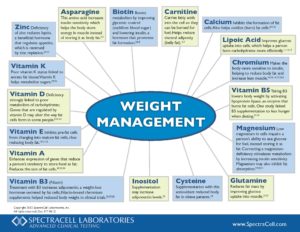You’re doing everything right on the Ketogenic Diet but frustrated with weight loss stalls.
You’ve given up bread. Upped your fats. Eating enough protein and cut your carbs.
You’ve initially had success. But now reached the dreaded weight loss plateau.
You’re scratching your head – Why haven’t I lost more weight?
I can just imagine the sheer frustration! All that effort with no result.
Before I share the 3 Top Reasons why you’ve stopped losing weight on the Ketogenic Diet, I want to point out that losing weight and keeping it off can be tough to master.
Let’s begin with the basics.
Sometimes, the basic foundations for breaking past the weight loss stalls are forgotten because they seem like no big deal.
However, the shortlist below is a big deal. If you aren’t doing these, I would start there.
Weight loss stalls on Keto – Start here
Sometimes common sense isn’t common practice. Look below for the most common pitfalls I see to weight loss stalls. If you aren’t doing the basics – start here.
- Tracking optimal water intake (1 liter/lb of body weight).
- Having higher protein, moderate fat, and minimal carbs at your first meal of the day.
- Keeping carbs below 50 grams per day.
- Having 1 to 2 bowel movements per day.
- Practicing time-restricted feeding.
If you’re doing all of these and still spinning your wheels, here are 3 Top Reasons why you have weight loss stalls on the ketogenic diet.
CHECK YOUR THYROID
THYROID
According to the Thyroid Foundation of Canada, a staggering 1 out of 10 Canadians have some form of a thyroid condition. Of those, as many as 50% are undiagnosed!
Healing your thyroid is an important part of restarting your metabolism.
Proper thyroid function directly controls how much fuel your body turns into energy and how much gets stored as body fat. This is exactly WHY those with sluggish thyroid function are overweight and fatigued.
The good news is, there are ways to support healthy thyroid function and get it working better again.
Here is a quick quiz to see if the thyroid is one of the reasons for your weight loss stall.
Underactive Thyroid (Hypothyroidism) Questionnaire
Mark (1) for sometimes or mild; (2) for often or moderate; (3) for very often or severe.
Skip all statements that do not apply to you.
____Muscles stiff in the morning, feel need to limber up
____Fail to feel rested even after sleeping long hours
____Feel “creaky” after sitting still for some time
____Heart seems to miss beats or turn “flip flops”
____Nauseated in the morning
____Start slow in the morning, gain speed in the afternoon
____Motion sickness when traveling
____Dizzy in the morning or when moving up and down
____Cold hands or feet
____Sensitivity to cold, prefer a warm climate
____Hair scanty, dry, brittle, dull, lustreless, lifeless
____Hair loss from the outer third of eyebrows
____Flaky, dry rough skin
____Sleeplessness, restlessness, sleep disturbances
____Poor short term memory, forgetfulness
____Poor response to exercising
____Hypoglycemia (low blood sugar)
____High cholesterol, cholesterol deposits on eyelids
____Constipation, less than one bowel movement per day
____Emotional, “go to pieces” easily, cry easily
____Dislike working under pressure, being watched
____Diminished sex drive, lack of sexual desire
____Yellowish tint to the skin on hands or feet
____Cracks on bottom of hands
____Clogged sinuses
____Low heart rate
____Low body temperature, especially at bed
____Recurrent infections
____Depression
____Headaches
____Puffiness of face or eyes
____Swelling of hands or ankles
____Irritability, mood swings
____Multiple food allergies/sensitivities
____ Coughing, hoarseness, muscle cramps – all worse at night
____FEMALE: Lumpy breasts, cystic breasts
____FEMALE: Menstrual irregularity, excess flow, premenstrual syndrome
Add up the numbers beside each of the statements that applied to you. If your total is 14 or higher, you may have hypothyroidism.
What is Hypothyroidism?
The thyroid is a pinkish, butterfly-shaped gland situated in the front of the neck below the larynx (voice box). Its function is to regulate the metabolism of every cell of the body. A deficiency can affect virtually all body functions.
If the thyroid gland is not functioning properly, everything else will suffer.
Normal thyroid function requires normal leptin signaling, certain minerals, along with normal pituitary, adrenal, and ovary/testes function.
Leptin Resistance – the possible driving force behind hypothyroidism
Leptin resistance occurs first. And later down the hormonal chain comes the pituitary hormones, which regulate the thyroid and growth hormones.
You cannot address one area without addressing the others.
What is Leptin Resistance?
Leptin is produced by your white fat cells and enters your hypothalamus (in your brain) through some complex signaling. Leptin’s primary job is to tell your brain when you’ve had enough food. Quite simply, when to eat and when to stop as well as how many calories we burn and how much fat we carry on our bodies.
This feedback system is designed to keep you from getting overweight.
Leptin resistance is when you have plenty of leptin, but the messages aren’t being received. If you don’t address this, your attempt to lose weight will likely fail.
How do you know if you have Leptin Resistance?
To definitively know, get a blood test. Spectracell Laboratories tests Leptin as well as other important blood sugar markers such as Insulin, Glucose, HOMO IR (the estimate of insulin resistance), Hemoglobin A1C. You can check out their blood test by clicking below
Cardiometabolic and Pre Diabetes Testing
Alternatively, you can take the Leptin Resistance Quiz found below to help identify if the problem is due to improper leptin signaling.
TESTING FOR THYROID FUNCTION
Medical blood tests often fail to detect an underactive thyroid. This is because they usually only measure Thyroid Stimulating Hormone or TSH. It’s important to know that your thyroid could be producing sufficient TSH, yet there may not be enough active hormones getting to the individual cells.
Thyroid Blood Test
More comprehensive blood tests for thyroid function include TSH, Total T4, Free T4, Free T3, Reverse T3, Anti TG, Anti TPO, Tg, and TBG.
If your medical doctor cannot run this full panel, you can check out SpectraCell Laboratories and get tested.

SpectraCell’s thyroid panel looks like this
Thyroid at home test
An easy at-home test you can do is the Basal Temperature Test (BTT).
What is the BTT?
The basal temperature test (BTT) is an effective self-test that can be performed at home. It measures the result of one of the thyroid’s main functions – body temperature. A low BTT suggests hypothyroidism.
THE BTT TEST – 2 SIMPLE STEPS
Step 1: Place a thermometer by your bed before going to sleep.
If you have a mercury thermometer, shake it down to 96 degrees F or less.
Step 2: Take your temperature as soon as you wake up. Before stirring, place the bulb of the thermometer under your armpit for 10 minutes. This will give you your lowest temperature of the day (which directly relates to thyroid gland function). Record the reading on 5-10 consecutive days.
The normal morning auxillary temperature should be between 97.8 – 98.2 degrees F (36.6 – 36.8 degrees C). If it is below 97.8 degrees F (36.6 degrees C), AND stays within the same range of temperatures (within .5 degrees), the thyroid may be underactive. For example: Day 1 = 35.5, Day 2 = 35.6, Day 3 = 35.5, Day 4 = 35.5, Day 5 = 35.8, etc.
If your temperature fluctuation is greater than .5 degrees, then it’s primarily the adrenal glands that need support. For example: Day 1 = 35.5, Day 2 = 34.5, Day 3 = 34.9, Day 4 = 35.8, Day 5 = 34.5, etc.
Additional note: Men, pre-pubescent and post-menopausal women can take the BTT test at any time. Menstruating women should begin testing on the second morning after the start of their flow to eliminate the temperature fluctuations that accompany the menstrual cycle. The test should be finished before ovulation begins.
CHECK YOUR MICRONUTRIENTS
Weight loss stalls, when you are doing everything right on the ketogenic diet, maybe due to a lack of specific nutrients.
Because your diet is limited you may actually not have the nutrients to tap into your fat reserves and burn them for energy. Those that tend to eat the same foods, day in and day out are also at risk of micronutrient deficiencies as are poor digestion, high stress, and low food quality.
Nutrients specific for proper weight loss include: Carnitine, Zinc, Lipoic Acid, and Vitamin B5
Carnitine – Carnitine helps with weight loss because of how it shuttles fatty acids into the cells so they can be burned for energy. Research shows it helps reduce visceral adiposity (belly fat).
Zinc – Deficiency of zinc affects healthy leptin levels. Leptin levels need to be within range and recognized by the brain to eat when truly hungry. Low zinc is also associated with low stomach acid, which is needed for proper digestion.
Lipoic Acid – Lipoic acid is well known for its role in the uptake of glucose into cells. This, in turn, helps burn carbohydrates more efficiently.
Vitamin B5 – Having enough vitamin B5 lowers body weight by lipoprotein lipase, an enzyme that burns fat cells. One study linked adequate vitamin B5 levels to reducing hunger.
For a more complete list of nutrients required for a healthy weight, look below

SpectraCell’s nutrient list for healthy weight
CHECK YOUR LIVER
Most people make the mistake thinking it’s the thyroid that regulates your metabolism.
However, the liver is actually one of the organs that also play an important role in your ability to lose weight.
When your liver isn’t functioning properly, it’s full of fuel but your body cannot use it. As a result, your body moves into a state of stress and relies on other ways to try to obtain fuel.
One of the ways your body obtains its fuel is from breaking down muscle.
This is one of the reasons why you may not have seen any results from your exercise regime. Initially, you may have lost a few pounds, but with the loss of muscle came a slower metabolism.
Not only that, whatever weight you lost came back even when you’ve still been watching what you’re eating.
Good news is once the liver regains its function, your weight begins to ‘fall off’ while you eat more food. You will also notice your energy levels climb, the dreaded 3 pm energy slump is a thing of the past, and you stay naturally thin, all year round.
Think of your liver as your ultimate natural pharmacy.
Some of the nutrients it stores are Vitamin B12, iron, copper, vitamin A, vitamin D, and vitamin K.
Your liver is also the main organ that keeps you from being sick and toxic.
It’s your primary organ of elimination, removing what you don’t need and keeping what you do.
Your liver works hard for you. It stores fuel (glycogen and triglycerides), conjugates hormones, and helps to balance your blood sugar.
Liver Resistance and its direct link to weight loss stalls
Just as someone can become leptin resistant or insulin resistant, one can also become liver resistant.
When your liver becomes overloaded with an over-accumulation of toxins, wrong diet, or just too much food in general, it prevents your fat cells from breaking down by making itself, resistant to insulin’s signaling.
Extra fuel in the form of triglycerides, that would normally be taken up by the liver is then circulating around the bloodstream. Sadly, this is not harmless to the body and instead, leads to damage to blood vessels and nerves.
Eating less, while can help the liver with less fuel to process, doesn’t really solve the problem, which is a liver that needs good toxic clear out.
All the while refeeding with specific nutrients to function optimally and to remove the excess triglycerides.
How healthy is your liver?
Take the Liver-Gall Bladder Questionnaire test to see if an overloaded liver is why you have a weight loss stall on Keto.
Liver-Gall Bladder Questionnaire – click the link below
Weight loss stalls – Figuring it out
Figuring out why you’ve stalled in your weight loss goals while going keto can be tough.
The most important thing to remember is that everyone’s body is different and will react differently to a number of variables.
I always like to start with the basic foundational principles to weight loss and go from there.
After which, once you’ve covered those off and still not losing inches, then this is a time to turn to proper blood tests.
TEST DON’T GUESS
There are proper tests that can help you pinpoint exactly what your body needs to start losing weight gain.
The best part is, these tests are easily accessible. Remember, blood doesn’t lie. Getting proper blood work done can really short cut your way to slim, strong, and feeling sexy again.
Clinically, all the clients I test are so grateful because it’s pinpointed what we don’t see, to then further customized their diet and supplement regime.
I truly hope I’ve helped shed some light with the 3 Top Reasons why you are having weight loss stalls with some simple solutions to fix it.

MAKE KETO EASIER
How to Lose weight on a Ketogenic Diet, improve energy and get healthy again.
For those that want more help, come to my next KETO WORKSHOP! This is where we get to connect and take a deep dive into Keto and Weight Loss.
How to Lose Weight on the Ketogenic Diet WORKSHOP!
Need a more personalized plan?
- Get help with weight loss. Contact Michale
- Get your personalized plan for weight loss with my 6 Weeks to Slim, Strong, and Sexy Plan
Michale Hartte, BASc (Nutr), NNCP, CH is your leading Nutritionist and Detox Specialist, focusing on gut-related health issues such as weight loss resistance, constipation, diarrhea, gas, bloating, leaky gut, ulcers, IBS and Fatty Liver Disease.
For more information on how to become a client, please contact Michale at 250-718-1653 (text or phone), Email Michale or visit www.askmichale.com. Serving all English speaking countries via phone, Skype, FaceTime or WhatsApp.
